The Cold War : Presidents Nixon-Reagan (1969-1989)


The cold war was a non-physical war between the U.S. and the Soviet Union that started in 1945. It was fueled by the fear of communism, nuclear weapons, and much more, therefore there was alot of tension between the two nations. Here, we cover what went on during the Cold War between the time of President Nixon to President Reagan.
During the presidential period of Richard Nixon 1969-1974
· Nixon was president from 1969- 1974. He took actions to and eventually succeeded in ending the fighting in Vietnam. He was re-elected in 1972. He began as a “fiercely anti-communist senator from California” (www.answers.com/topic/richard-nixon) before working his way up from vice president to president. His role in the second Cold War was crucial due to his foreign affairs.

- He dealt with other nations through the practical and flexible philosophy of real politik.
- This policy was arranged by Nixon’s Assistant for National Security Affairs, Henry Kissinger.
- Who believed that the U.S. should evaluate nations’ powers: ignore the weak and confront the powerful nations.

- Nixon began to visit communist countries such as Beijing, Moscow, and Berlin to enforce a policy aimed to ease Cold War tensions call Détente.
- This is the French term for “the relaxation of tensions”.
- This policy put a ban on nuclear testing and a strict limit on ABMs
- While visiting the Soviet Union, Nixon met with the General Secretary of the Communist Party, Leonid Brezhnev, and the two began the Strategic Arms Limitation Talks (SALT).

- The SALT 1 Treaty limited the number of intercontinental ballistic and submarine launched missiles and was signed in May of 1972.

- During Nixon’s foreign affairs and the Cold War tensions among Communist nations, the Soviet Union was suffering through a very difficult time.
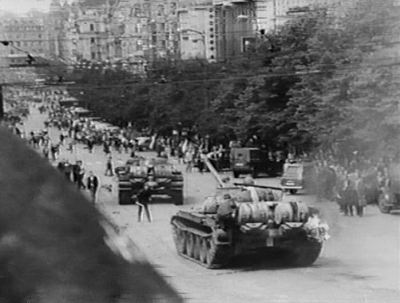
- In 1968, Soviet Union and Warsaw troops invaded Czechoslovakia which initiated the Brezhnev Doctrine, stating that Communist countries was intervene in other Communist states whose policies threaten the international Communist movement.
- In 1969, Soviet and Chinese troops clash at the border.
- In 1972, the SALT 1 Treaty is signed.
Commentary
Richard Nixon was the first president to visit Communist China since its revolution which had isolated itself in 1949. His objection was to bring together the world’s strongest nations and unite them to settle the tensions and prevent and mend damages caused by fighting. These countries included the U.S., China, Soviet Union, Western Europe and Japan. Nixon had displayed an interest in foreign affairs early on in 1954 and visited several countries. I think that this is brave and admirable of him, and although his intentions were good, I think his intervention is ironic considering the negative attitude towards Communism in the U.S.
The SALT meetings and treaties were signed in order to restrain the arms race between the U.S. and Soviet Union. It was first introduced by Lyndon B. Johnson in 1967 and the first two treaties were signed in 1972 and 1979. I believe that these meetings were not made on friendly terms but instead were enforced to ensure each country that they no longer had to compete with other powerful countries. These treaties were not enforced properly, and in my opinion ultimately failed, but I believe they are a step in the right direction for these two superpowers.
During the time of the Cold War, The Soviet Union was in bad condition. Between bombings and nuclear disasters such as Hiroshima, Nagasaki, and Chernobyl and the evil dictator Stalin, many people were dying and being killed. I think, that both Soviet Union and the U.S. were afraid of each other, and that it the reason behind the SALT meetings and their indirect fighting. However, Soviet Union’s public had it worse off, fighting a battle of its own.
__________________________________________________________________________________________________________________
During the presidential period of Gerald R. Ford 1974-1977
- Gerald Ford was the 38th president of the U.S., he had been moved from vice president to president after Nixon's resignation because of the Watergate Scandal.

- Ford did not look for any changes in U.S. relations with the Soviets. He also did not have any great ideas on how to deal with communism.
- Like Nixon, Ford put his trust in Henry Kissinger who was still the secretary of state. He followed his instructions in developing good relations with China and the Soviet Union.
- He met with Leonid Brezhnev on November 1974 in order to discuss and negotiate on the subject of arms.
- He also went to Helsinki, Finland to make better relations between Eastern and Western Europe. There, 35 countries, even the Soviet Union, signed Helsinki Accords which called for cooperation between different nations. The nations of Helsinki Accords agreed to respect all European borders and not interfere into other countries' affairs.

- Mayaguez incident was an incident when Cambodia's communist government had claimed a U.S. ship that they said was in its water. Ford then sent the U.S. Marines to rescue the 39 crew members. This rescue took the lives of 41 U.S. troops. Although it had taken many lives, many Americans saw the win as a show of strength and were very proud.
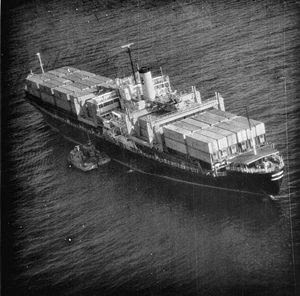
Commentary
One issue that was debated during the presidential period of Ford was whether or not Detente was a good thing. Although it was considered a positive policy because it helped in obtaining better relations and negotiations with the Soviet Union, many, however, criticized detente because it showed that the balance of power was much more important than trying to fix the mistreatment other people received in thier nations. Kissinger supported his point that Detente was good, by saying that it would have been ridiculous to anger the Soviets for their wrongdoings and no good results would have come from it, therefore it was better to build a stronger relation with the Soviet Union for negotiations on important topics such as nuclear weapons. In a sense, I agree with Kissinger because it is not possible to stop the cruel treatment of people around the world all at once, no matter how much we want to. In addition, without this way of thinking, there would have been no treaties, SALT agreements, and any other negotiations between the U.S. and the Soviet Union. These had been all the signs of cooperation and accomplishments, without the efforts and results that came with them, the Cold War could have still gone on today.
Political cartoon about Detente

______________________________________________________________________________________________________________________________________
During the presidential period of James Carter 1977-1981
- James Carter, unlike the former presidents, Nixon and Ford, wanted to advocate human rights for everyone, making that the main focus of his campaign. He did not like the philosophy of realpolitik which allowed cooperation with other powerful countries even if the country defied the policies that U.S. believed in.

- Human rights are "the rights and freedoms such as those named in the Declaration of Independence and the Bill of Rights, to which all people are entitled" (Danzer, et al. 1097).
- He decided to cut off military aid to countries, even U.S.'s allies, such as Argentina and Brazil because they tortured their citizens which was a violation of the human rights Carter encouraged.
- Citizens, however, questioned if it was smart to cut ties with some countries such as Nicaragua. Nicaragua was run by a dictator but it was on the side against communists.
- He also made a Bureau of Human Rights under the State Department. Its purpose was to promote human rights all around the world.
- Because of his firm beliefs on human rights, this also led to a problem in Soviet relations with America, which led to the second SALT negotiations.
- Carter and the Panama Canal
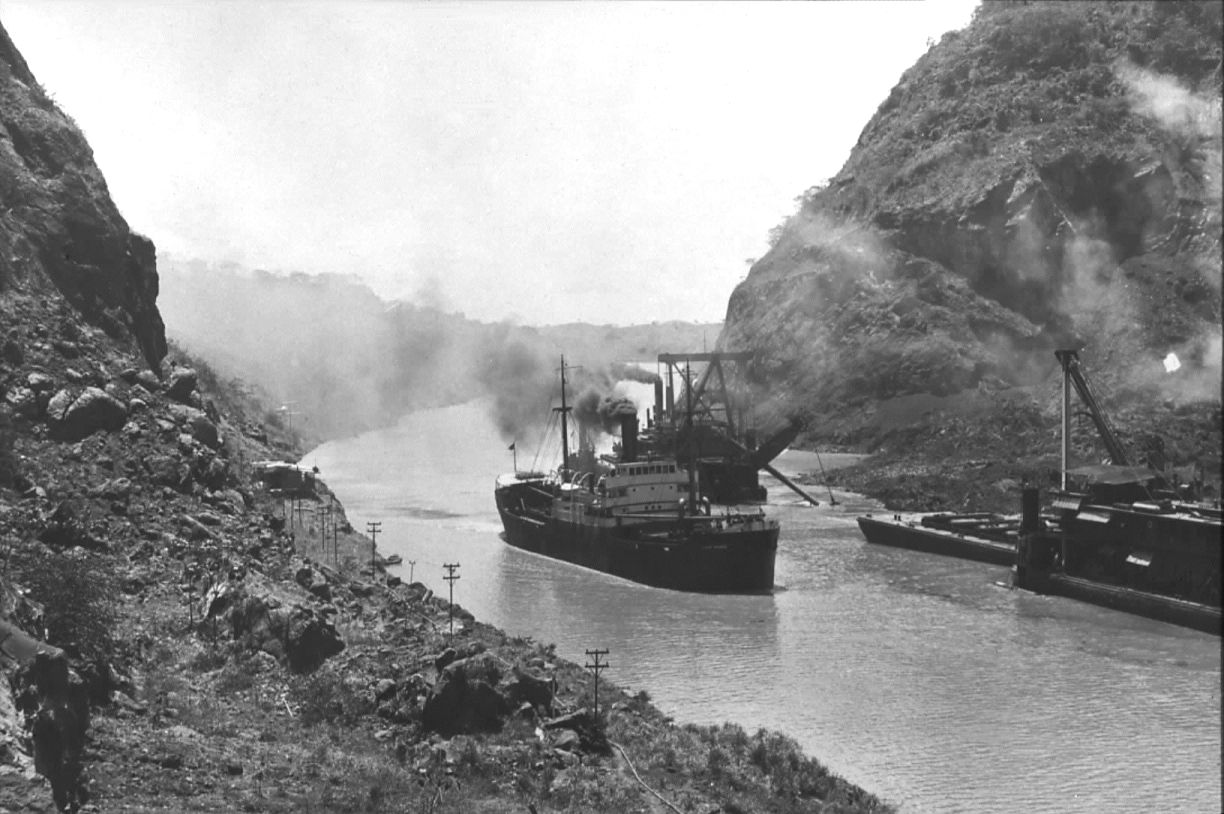
- During Carter’s presidency, Panamanians showed resentment in having their nation split in half by the Panama Canal, a canal they did not even own or have rights to as a country.
- Carter then decided to negotiate what to do with the Panama Canal. A treaty was written and stated that it would give Panama control of the canal on December 31st, 1999.
- The treaty helped to establish a better relationship between the U.S. and Latin America.
- As stated before, Détente is the French term for “the relaxation of tensions”.
- Before Carter's presidency, Détente had reached its climax as President Nixon and President Ford worked hard to make good relations with China and Soviet Union.
- Unfortunately as Carter and the U.S. Government tried to continue a good relationship the Soviet Union, it failed due to Carter’s strong beliefs on human rights and his disappointment at their cruelty towards those who were against their government. Therefore, it took longer to get the SALT renegotiated.
- Leonid Brezhnev and Carter met once more in Vienna, Austria in June 1979 to renegotiate SALT. There they then signed the SALT II agreement.
- SALT II provided limits on the number of “strategic weapons and nuclear missile launchers that each country could produce" (Danzer 964), but it did not “reduce armaments (964)”.
- On December of 1979, the Soviets invaded Afghanistan, this action infuriated Carter, who demanded Brezhnev to stop. Carter then stopped fighting for SALT II agreement, and the treaty was voided.
Cold War Map of 1980 
Commentary
Jimmy Carter was a firm believer in human rights and thoroughly advocated these ideals during his time in office, which I think was quite admirable and brave to do. Many need their rights in other countries and by setting an example, I feel as though Carter could have helped push other countires to give rights to their citizens. But because of his need to advocate civil rights, he lost ties with certain countries. However, he also gained ties with others, such as Panama, in which he gave full rights to the Panama Canal. Although giving full rights to Panama was nice, I don't necessarily think that losing ties with some countries is a smart idea for trading purposes, treaties, or for becoming allies. Carter did, however, usethese beliefs in negotiating SALT II, and when Brezhnev invaded Afghanistan, Carter became infuriated that Brezhnev had not followed the rules laid out, causing SALT II to crumble.
During the presidential period of Ronald Reagan 1981-1989

- Reagan was an anti-communist who called Soviet Union, "the evil empire" ( Danzer, et al. 981). He promised to talk and act tough to the Soviet Union. Because of his public statements that bad mouthed the Soviet Union, Leonid Brezhnev was heard to have said, before he died, that the Americans were trying to make a policy of " adventurism, rudeness, and undisguised egoism that threatened to push the world into flames of nuclear war" (Warren 218). U.S.'s relationship with Soviet Union was so bad that people began to call the period Cold War II, which had started after the collapse of detente.
- He tried to stop communism in the Middle East, Carribean, and Central America.
- He also increased military spending. During the 1980s, nuclear weapons were developed at a disturbing rate.
- He said that the military needed to be stronger in order to make the Soviets listen to U.S. and force them to make peace with favorable agreements.
- In 1981-1984, the Defense Department budget almost doubled.
- He also brought back the MX Missile and B-1 Bomber which people disliked very much.
- The SDI (Strategic Defensive Initiative) was put into effect in order to protect Americans from Soviet Union's missiles. It called for the creation of a protective shield in U.S. that would make nuclear attacks fail. Reagan thought SDI would end the arms race.This system required lots of money in order to run.
- Reagan later eased his anti-communist feelings because he wanted to be in history and books as a person who made peace with Soviet Union.
- In the fall of 1984, Soviet Foreign Minister, Andrei Gromyko came to Washington to meet and talk with the president which started a new relationship between the two nations.
Andrei Gromyko 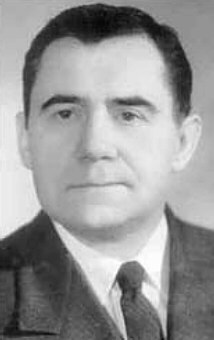
- Mikhail Gorbachev became the seventh and new general secretary of Soviet Union in 1985. He was a "bold and audacious politician who refused to think or act in old established patterns" (Warren 225).
Mikhail Gorbachev 
- He worked hard in creating better relations with the U.S. because he understood that it could lead to a decrease in military spending and improve the economy.
- Through his work and effort for cooperation and peace, suspicion and mistrust slowly faded away between the two countries.
- He met with Reagan in a series of arms control meetings. They finally later signed the INF Treaty (Intermediate-Range Nuclear Forces Treaty).
- The INF Treaty (Intermediate- Range Nuclear Forces Treaty), signed on December 8, 1987, called for the removal of two classes of weapon systems in Europe. It also allowed the two nations to send someone to check up on each other's military installations. During the next three years, 859 U.S. missiles and more than 1,800 Soviet missiles were destroyed.
- Gorbachev encouraged two ideas:
- Glasnost, which was the "openness in discussing social problems" (Danzer, et al. 996)
- Perestroika,which meant "economic and bureaucratic restructuring" (Danzer, et al. 996)
- These two ideas brought back private ownership, free elections, free markets, profit incentives, substitution of central planning with local decision making, and the disappearace of most government censorship.
- In Eastern Europe, totalitarian control broke down.
- Gorbachev decreased the number of Soviet troops there.
- Non-communist groups were allowed to set democratic governments in the satellite nations such as East Germany and Poland.
- On November 9, 1989, the Berlin Wall, considered a symbol of the Cold War, was finally torn down as Germany was reunited as a whole for the first time in 28 years.

- "The collapse of Communism in the Soviet Union and Eastern Europe" (Danser, et al. 998) indicated the end of the Cold War.
- Communism in China still continued, however there was more effort for economic reform since the 1980s.
- Central America and the Carribean were affected by Reagan's administration who wanted to stop the influence of commuism in the Western hemisphere.
- Reagan claimed that Nicaragua was on the side of Soviet Union and was trying to get other Central American countries on their side. Reagan halted the aid that was given to the Sandinista government, and instead supported the Contras who were anti-communists.
- Although, military aid to Contras was prohibited by the Boland Amendment that was passed from Congress, The Reagan administration still helped the Contras.
- Grenada had a leftist government with ties to the Soviet Union and Cuba. Reagan then sent troops to invade Grenada and restore the government to democratic rule.
Commentary
Reagan in the beginning of his presidential period had hated the "reds" intensely. He responded aggressively to any events that had to do with communism such as what he did in Grenada. However, it is interesting how this hate later turned into peace and friendship towards the Soviet Union. It was said that Reagan and Gorbachev after having met each other several times, started a " constructive personal relationship" (Warren 225) and became the best of friends. This friendship was very significant in history because it was the key to why and how the cold war especially the arm race had been finally put to rest. Without Reagan's change of his harsh views on the Soviet Union, the accepting and understanding mind of Gorbachev, and their willingness to reach to an agreement and develop a better relation, the Cold War could have still gone on today. What would it be like to live in a world constantly scared about being attacked even up till today?
Example Of U.S.'s anti-communism propaganda
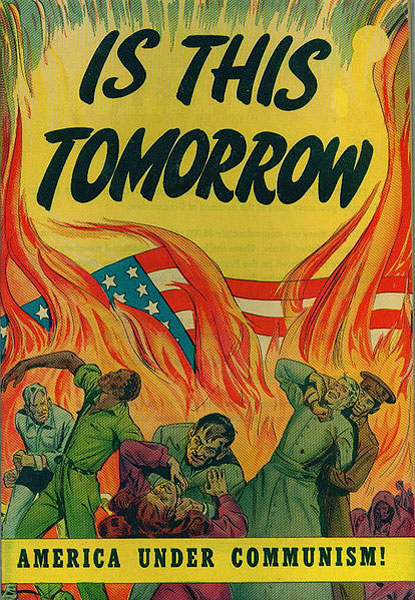
_____________________________________________________________________________________________________________________________________
A few important things after Reagan's presidential term
- Gorbachev resigned from the position of Soviet president in December 1991. He also banned the communist party to take any part in the government ever again.
- The Soviet Union had now finally disappeared after 74 years. In its place, a loose government called CSI or Commonwealth of Independent States formed.
- On February 1992, President Bush and Russian president, Boris Yeltsin declared the end of the Cold War.
- In January 1993, Start II treaty was signed, it cut down the number of nuclear arsenals by 75% percent for both countries.
Sources Used:
Danzer, Gerald A., et al. The Americans. Boston: McDougal Littell, 2002.
Kort, Michael. The Cold War. Brookfield, Connecticut: The Millbrook Press, 1994.
Warren, James. Cold War. New York: Lothrop, Lee & Shepard Books, 1996.
http://news.bbc.co.uk/2/hi/europe/1112551.stm
http://www.pbs.org/wgbh/amex/presidents/37_nixon/nixon_foreign.html
http://www.britannica.com/EBchecked/topic/568184/Strategic-Arms-Limitation-Talks
http://www.answers.com/topic/richard-nixon
http://findarticles.com/p/articles/mi_m1316/is_v18/ai_4262005/?tag=content;col1
http://www.usatoday.com/news/world/2004-06-07-reagan-world_x.htm